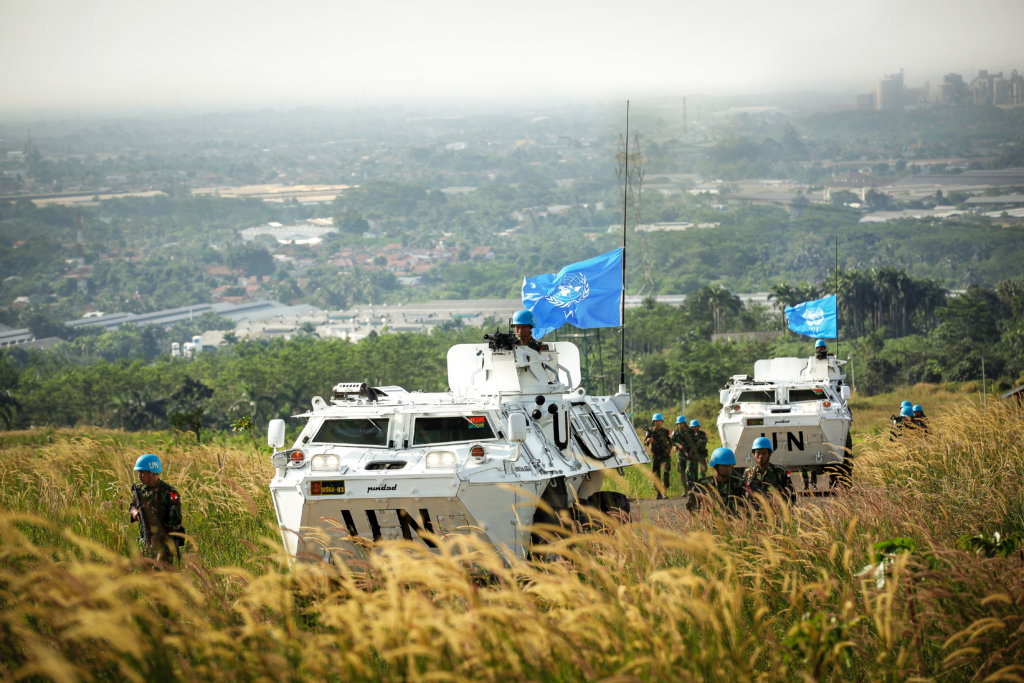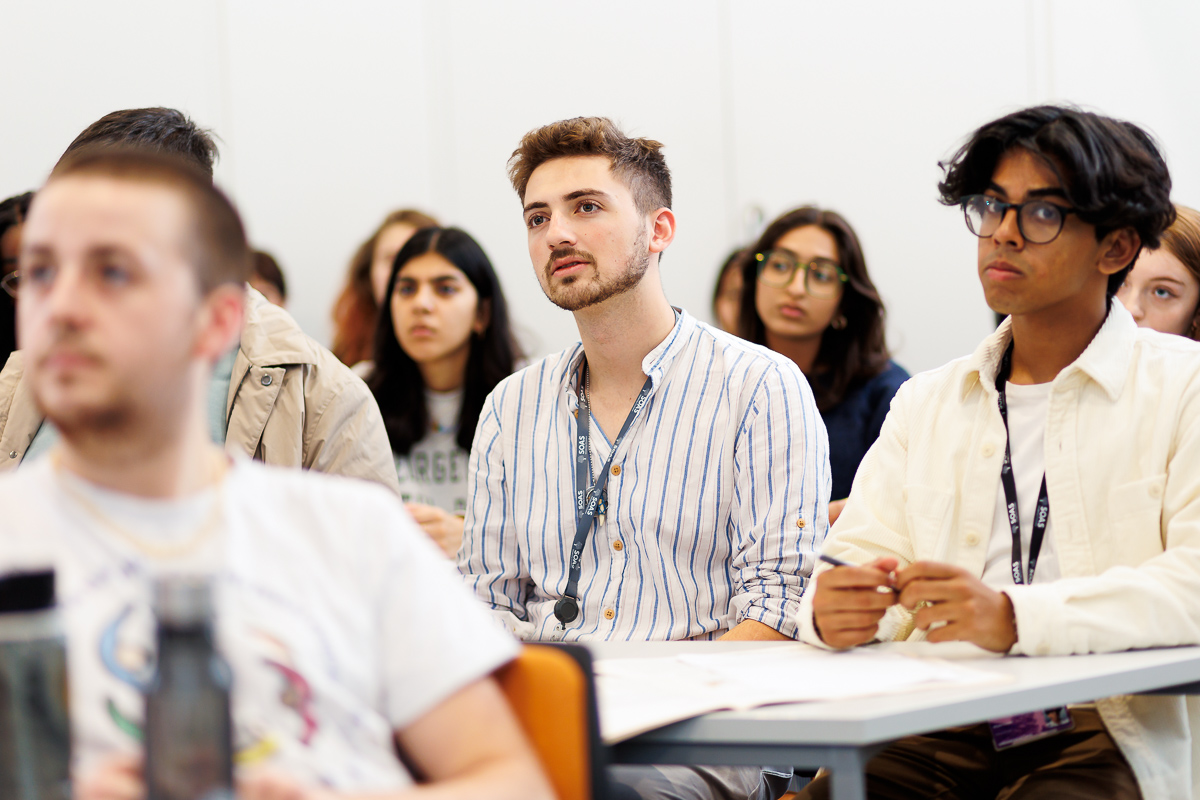Most universities are ivory towers. Despite well-meaning efforts to promote diversity, what’s taught in most of the world’s top universities, often in the world’s richest economies, frequently struggles to escape the views presented by a narrow circle of European elites. But SOAS University of London’s Department of Politics and International Studies stands out in presenting a broader view of the world, its challenges, and its emerging trajectories.
Two postgraduate programme clusters — one focused on Politics and International Relations; one focused on International Studies and Diplomacy — approach the global, international, regional and local politics of Asia, Africa, and the Middle East from a non-Western angle.
Across all its programmes, students are provided with opportunities to access different parts of the world – for example, via Study Tours abroad. The Department is proud of its regional expertise, leveraging it to examine the political drivers that underpin global issues from climate to finance. Its programmes answer some of the biggest questions of our time, and they scrutinise prevailing answers through a variety of critical and often marginalised perspectives.

At SOAS, you’ll learn from academics who spend substantial periods of time in their countries of expertise. Source: Shutterstock
Politics and International Relations: An examination of the global, regional, and local politics of Asia, Africa, and the Middle East
SOAS’s MSc degree in Politics and International Relations has several pathways – each fusing disciplinary expertise with regional applications. The International Politics and Security pathway, for instance, explores key issues and debates in world politics from a variety of perspectives: Why do wars happen? Is global peace possible? How does migration challenge and change the international political order?
There is no one answer to these questions – and the MSc in Politics and International Relations capitalises on this fact. It uses different theoretical lenses in combination with SOAS’s rich empirical expertise to display the dynamics of world politics from the perspectives of people on the ground in Asia, Africa, and the Middle East. From ‘Colonial Legacies and Postcolonial Politics in Southeast Asia’ and ‘Geopolitics and Security in Central Asia and the Caucasus’ to ‘The Politics of Inequality in Northeast Asia: Japan, Korea and Taiwan’ as well as ‘State and Transformation in the Middle East’ or ‘Rule and Resistance in Contemporary Southern Africa’, the MSc in Politics and International Relations investigates the world and its people.

Source: SOAS University of London
If the limits of our language are the limits of our knowledge, SOAS circumvents this by recruiting bilingual or trilingual academics. Most academics here speak one or more of the languages in the regions they study, and they produce top-quality research about the politics of those regions. This means that what you learn about Saudi Arabia, Sri Lanka and South Korea isn’t informed by journal articles written only in English, but also by scholars writing in Arabic, Sinhala, and Korean.
These faculty members teach modules through a combination of methods, principally lectures, tutorials, seminars, and supervised individual study projects. As a SOAS student, learning can also extend beyond London. Harshul Singh, an MSc International Politics student, received funding to take part in the Lancaster History Postgraduate Conference 2023. “I talked [about] elitism in social sciences, particularly the […] marginalisation of Dalit scholars,” he wrote in a LinkedIn post. I “got a chance to explore the beautiful city and met amazing scholars.”

Source: Shutterstock
International Studies and Diplomacy: Multidisciplinary preparation for a career in international affairs
SOAS also offers an MA in International Studies and Diplomacy that highlights diplomatic training and policy-focused teaching. The programme crosses disciplines and leverages the teaching and research strengths of the Department’s Centre for International Studies and Diplomacy (CISD) as well as a wide range of language options. From ‘International Economics’ to the ‘History and Future of the United Nations’, modules fulfil the needs of anyone aspiring to embark on a career requiring a deep understanding of political, not-for-profit, corporate, or academic environments.
This is what Dr. Feroza Sanjan loved most about her MA International Studies and Diplomacy. “I truly appreciated the Global South perspective brought in by our lecturers,” she says. “I specialise in South Asian government and politics and, as a result, I carry with me a deep understanding of the unique political, historical and cultural circumstances of the region.”
Sanjana studied courses in political economy and the role of multinationals in developing countries – a turning point for her academic work. “It directly informed my PhD thesis, the focus of the courses I went on to teach as a Visiting Professor at Freie Universität Berlin and … my work as a foreign policy consultant to the European Union,” she says. “It also helps me in my current role where I work at the intersection of business and women’s rights [as consultant at the UN Women Regional Office for Asia and the Pacific].”

Source: SOAS University of London
Such intellectual experiences are a big reason behind the success of graduates in landing jobs at the likes of BBC World Service, Bloomberg, the British Red Cross, the British Foreign, Commonwealth, and Development Office (FCDO), the United Nations, and more. These are competitive roles that require a sophisticated understanding of the world, its regions, and the infinite nuances that riddle people’s relationships with one another. These are the jobs for which SOAS prepares its graduates.
Sanjana believes her MA prepared her well in this aspect. “I enjoyed the diversity and the fact that SOAS has always been a space that welcomes different viewpoints. I also met some of my closest friends at SOAS,” she says. “Universities, to me, are spaces where any topic can be critically discussed, and SOAS was truly a special place for developing my worldview towards life and people.”
SOAS Politics is ranked fifth in the UK and 17th worldwide (QS World University Rankings 2023). It is also ranked third worldwide specifically for the research reputation of its Politics Department. To broaden your mind and change your life by “knowing places” (worldwide) and, then, “going places” (professionally), apply to the postgraduate programmes offered by the Department of Politics and International Studies.
Follow SOAS University of London on Facebook, Twitter, Instagram, LinkedIn, YouTube, Soundcloud, Weibo










